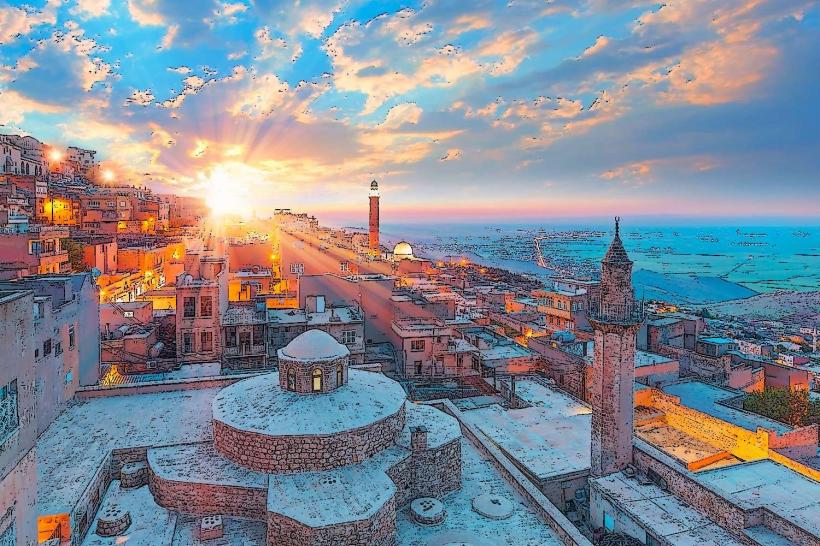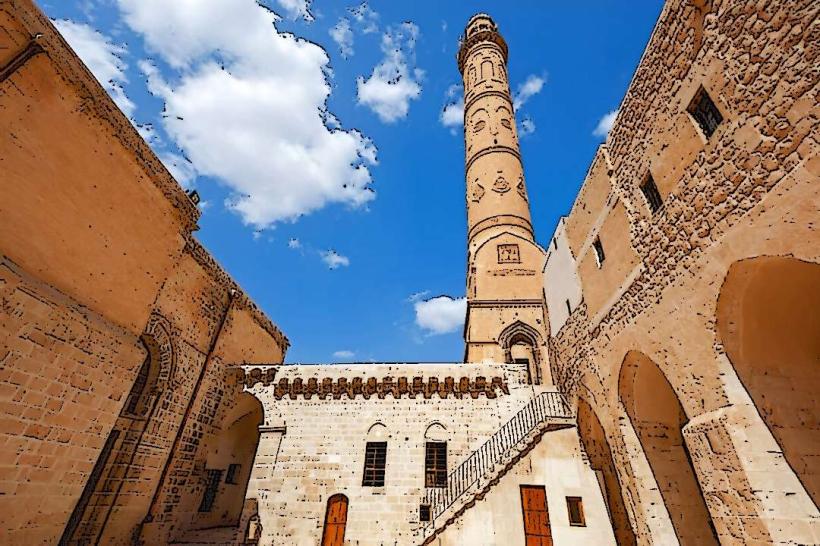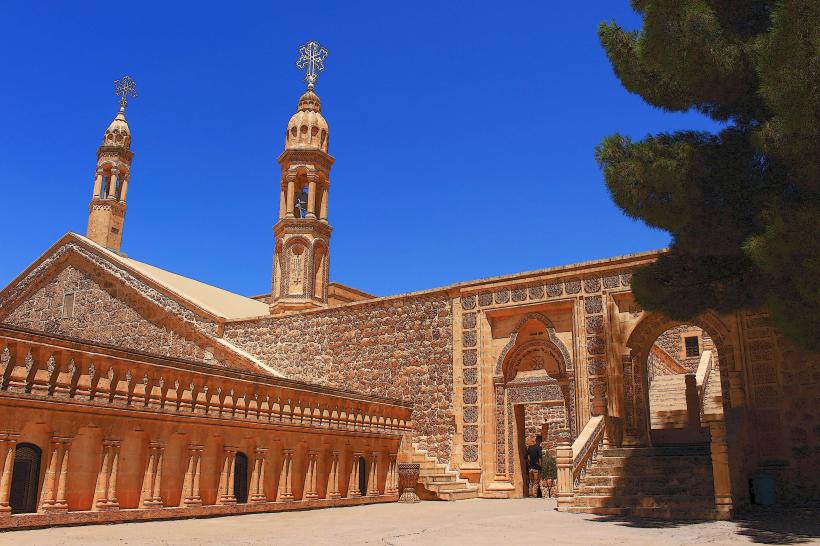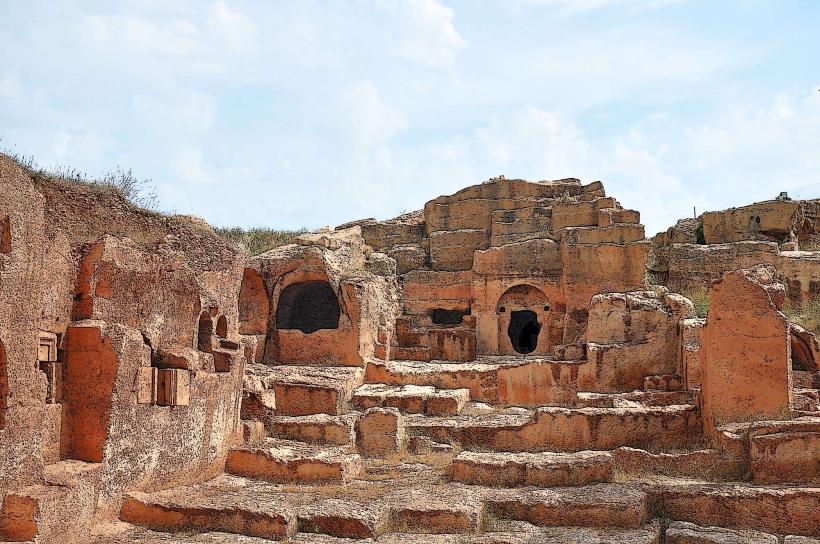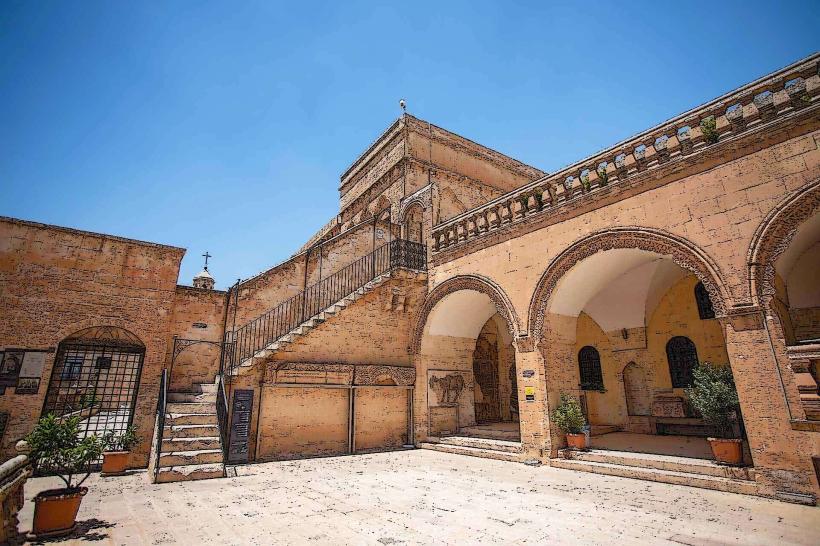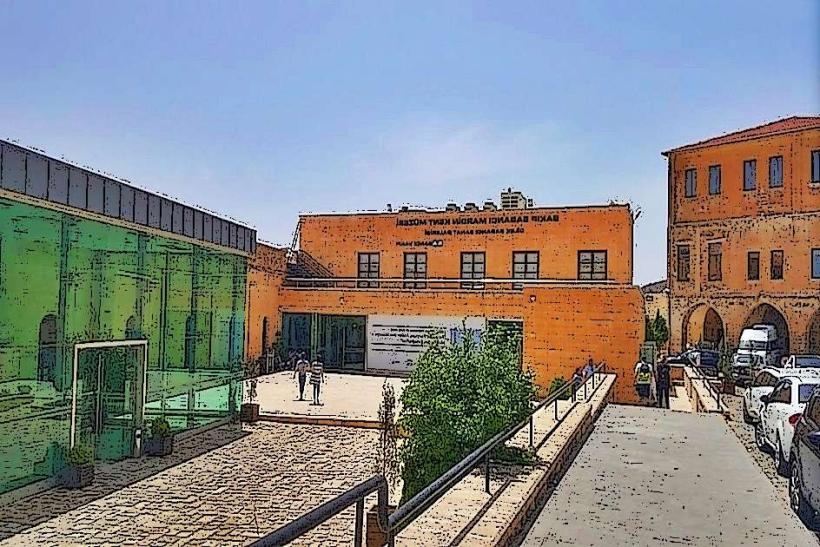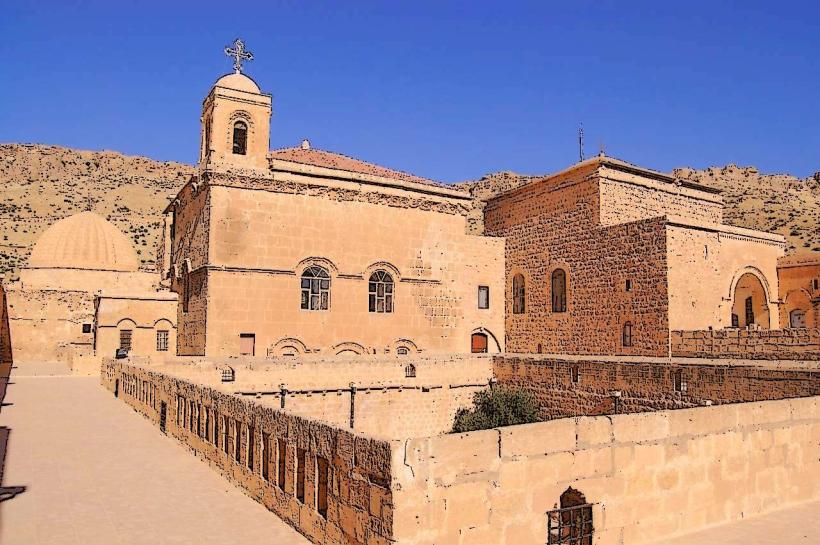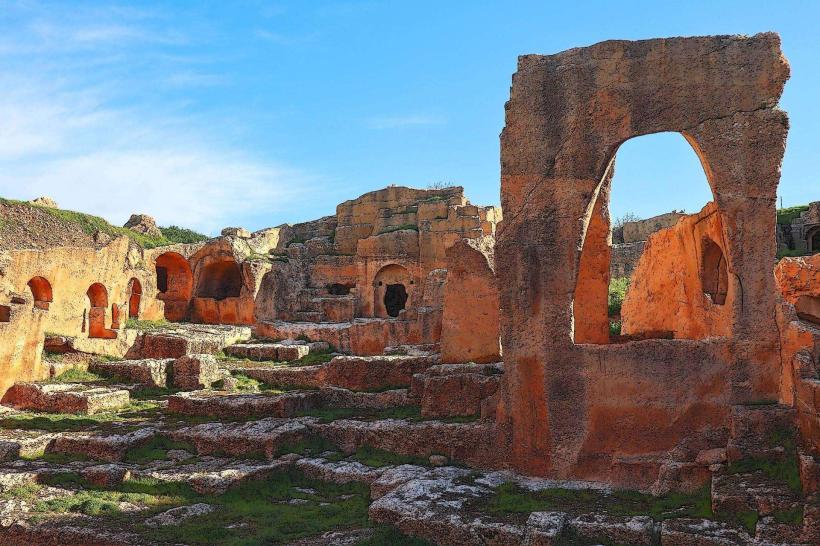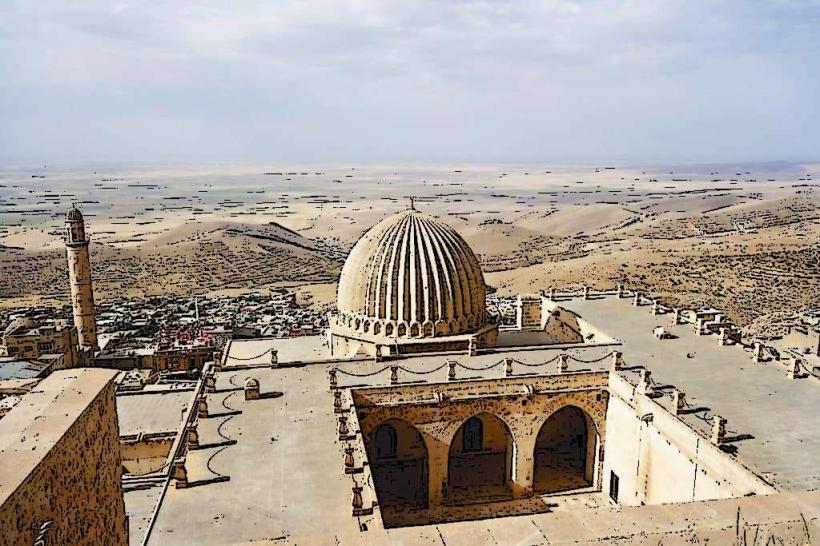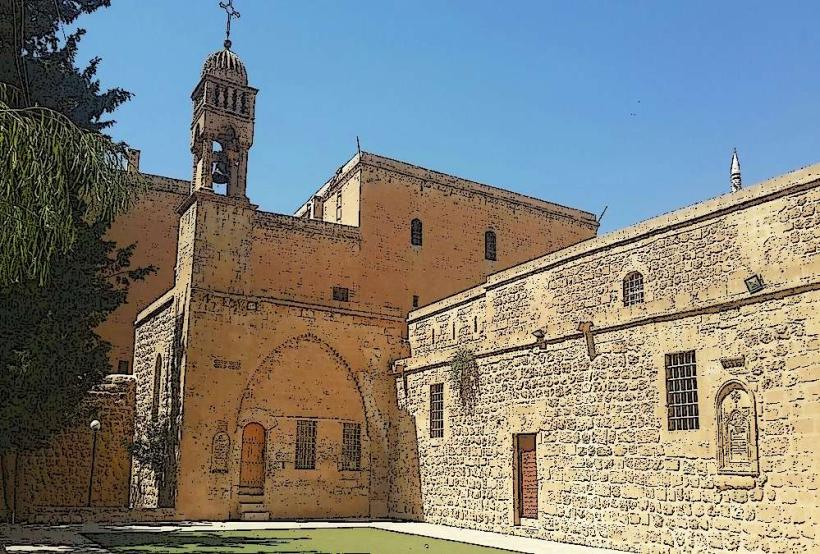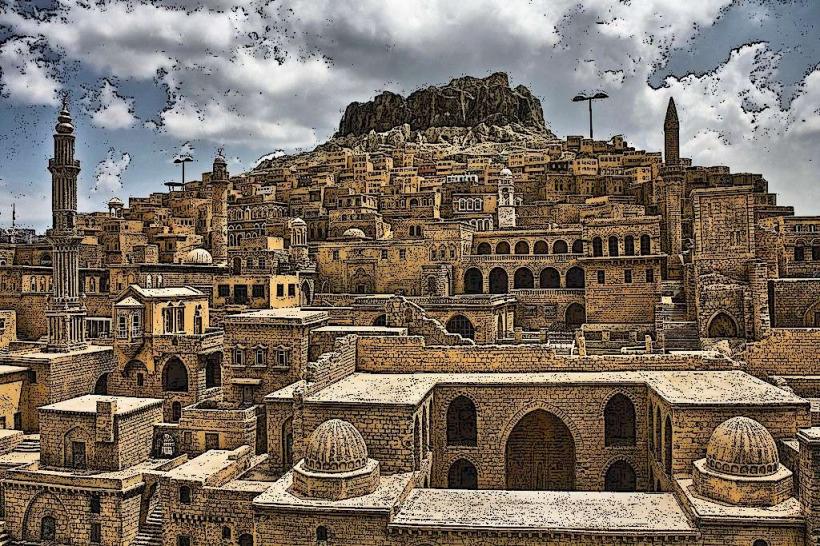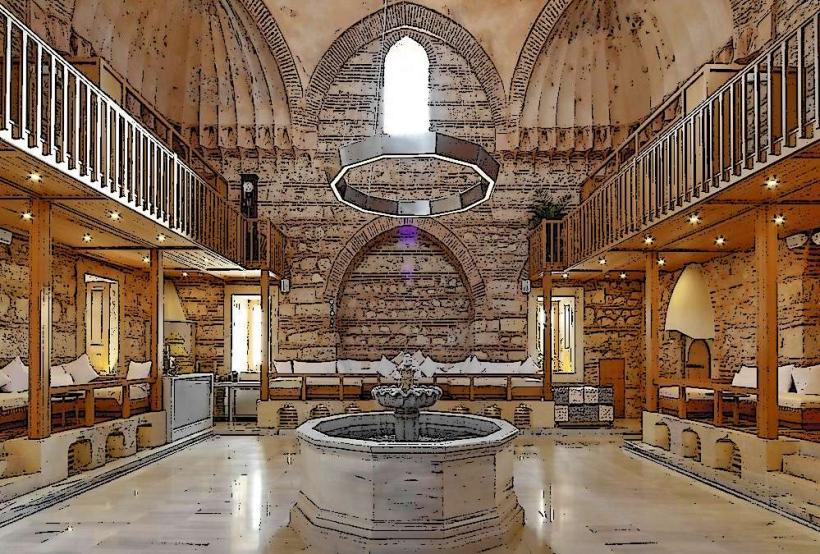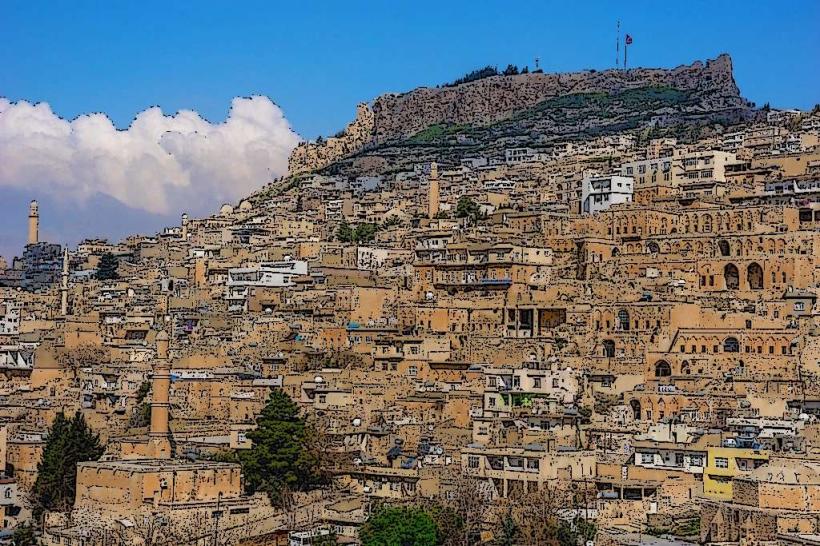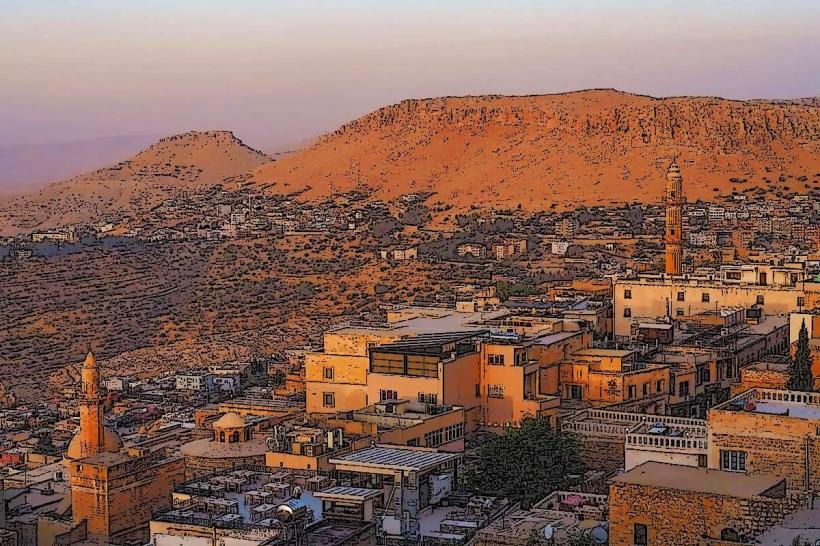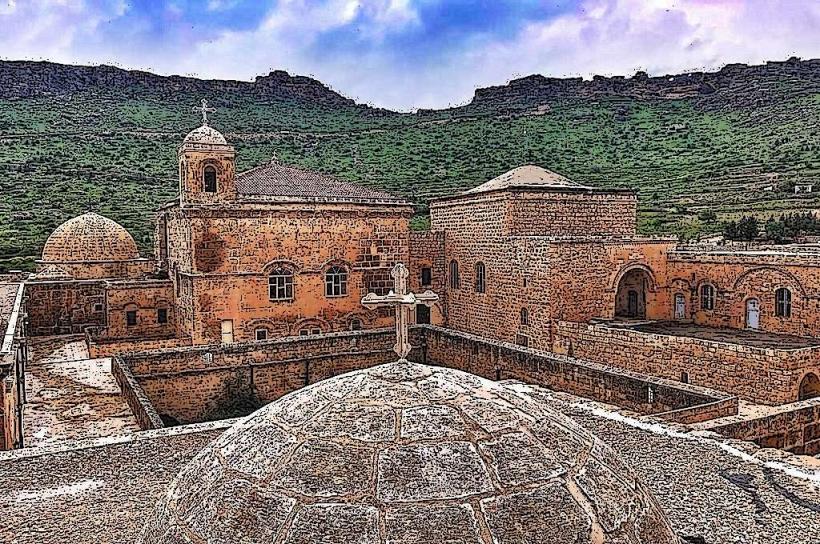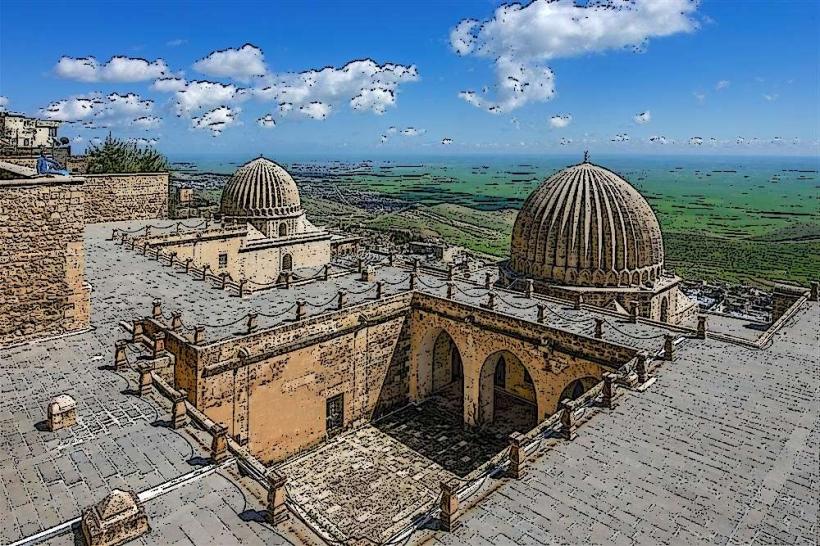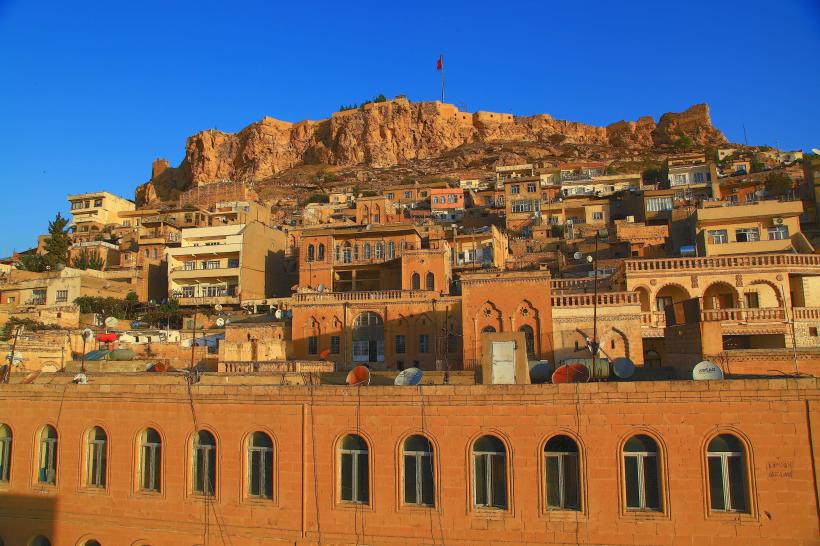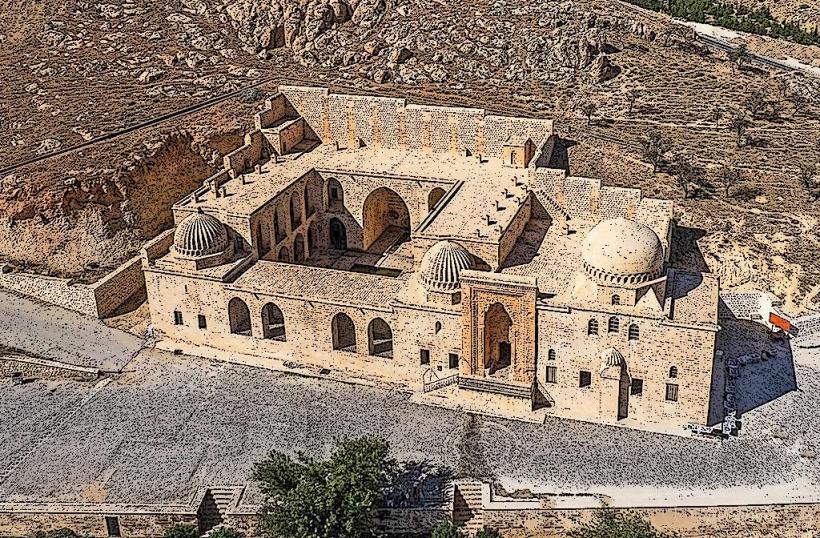Information
Landmark: Mardin Old TownCity: Mardin
Country: Turkey
Continent: Asia
Mardin Old Town, Mardin, Turkey, Asia
Mardin Old Town is a historic urban settlement situated on a steep hillside overlooking the Mesopotamian plains in Mardin, Turkey.
This ancient city is characterized by its stone architecture and strategic elevated position.
Visual Characteristics
The old town is constructed primarily from honey-colored limestone, quarried locally. Buildings feature flat roofs, often used as terraces, and are characterized by intricate stone carvings and arched doorways. The urban fabric is a dense network of narrow, winding streets and staircases. Architectural styles reflect a blend of Artuqid, Ottoman, and Syriac influences, with prominent minarets and domes.
Location & Access Logistics
Mardin Old Town is located approximately 1.5 kilometers east of the modern city center of Mardin. Access is via the D380 highway, turning onto local roads leading into the old city. Parking is limited within the old town itself; designated parking areas are available at the base of the hill and near the city gates. Public transport within the old town is primarily on foot due to the steep inclines and narrow streets. Local dolmuş (minibus) services connect the old town to other parts of Mardin city.
Historical & Ecological Origin
The origins of Mardin date back to at least the 3rd century AD, with evidence of settlement from Assyrian times. It served as a significant administrative and religious center for various empires, including the Artuqids (12th-13th centuries) and later the Ottomans. The city's strategic location on the Silk Road contributed to its historical importance. The geological formation is a limestone plateau, providing a stable foundation for the city's construction.
Key Highlights & Activities
Exploration of the ancient streets and architectural sites is the primary activity. Visitors can observe the Great Mosque of Mardin (Ulu Cami), the Kasimiye Madrasah, and the Deyrulzafaran Monastery. Photography of the cityscape and the Mesopotamian plain is recommended. Sampling local cuisine at traditional restaurants is also a key activity.
Infrastructure & Amenities
Restrooms are available in public areas and within many restaurants and cafes. Shade is provided by building overhangs and narrow street configurations. Cell phone signal (4G/5G) is generally available throughout the old town. Food vendors and restaurants are present within the old town, offering local dishes.
Best Time to Visit
The best time for photography is during the early morning or late afternoon when the sunlight casts long shadows on the limestone buildings. The most favorable months for visiting are April to May and September to October, when temperatures are moderate. Summer months (June-August) can be very hot.
Facts & Legends
A local legend states that the city's name, Mardin, derives from the Syriac word "Marde," meaning "fortress" or "kingdom." The city is also known for its historical role as a center for Syriac Christianity, with ancient monasteries still in operation.
Nearby Landmarks
- Great Mosque of Mardin (Ulu Cami) - 0.1km West
- Kasimiye Madrasah - 0.2km Northwest
- Deyrulzafaran Monastery - 3.5km East
- Mardin Museum - 0.3km West
- Zinciriye Madrasah - 0.1km West

